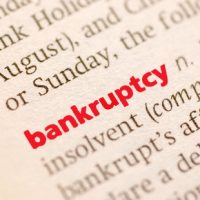What Is The Best Interest Of Creditors Test For Chapter 13?

The formal, written bankruptcy exemptions in Illinois protect most core financial assets. So, the idea that people who file bankruptcy lose most or all of their property is largely a myth. But most of these exemptions are value-based. For example, the motor vehicle exemption protects $2,400 of motor vehicle equity. Informal exemptions, such as the best interests of creditors test in 11 U.S. Code § 726, provide additional protection.
Only an experienced Chicago bankruptcy attorney knows about such loopholes, and more importantly, knows how to use these loopholes effectively in court. DIY filings may save some debtors some money in the short term, but they cost money in the long term. Individuals are unaware of these loopholes and don’t know how to properly present arguments in federal court. So, an investment in a partnership with a Chicago bankruptcy lawyer almost always pays off.
Proper Asset Valuation
The best interests of creditors protection starts with strategic form filing. A lawyer does more than fill in the blanks. A lawyer knows how to fill in the blanks.
Another provision of the Bankruptcy Code requires debtors to declare the as-is cash value of their assets in Schedule A. There’s usually a significant difference between the as-is cash value, or garage sale value, of an asset and its fair market value.
A home is a good example. Many debtors put the home’s tax appraisal value in Schedule A. This value is already slightly inflated. Tax appraisers care nothing about reductions due to comparable or market conditions. Higher home prices mean higher property taxes.
So, the proper beginning is a fair market value. According to the IRS, a home’s quick sale value, which is roughly equivalent to an as-is cash value, is 80 percent of its fair market value price.
There’s more. A quick sale price is usually a motivated seller price in a traditional real estate agent-driven transaction. But a home’s true garage sale value is probably its “we buy ugly houses” home investor value. Most of these companies pay pennies on the dollar for an as-is, no-inspection cash sale.
Always work with a Chicago bankruptcy lawyer before using a home investor’s cash offer as the Schedule A value. Unless certain legal groundwork is in place, the trustee (person who oversees the bankruptcy for the judge) could accuse the debtor of bankruptcy fraud. A conviction usually means prison time.
Practical Issues
That first section lays out the theory of the best interests of creditors rule. Now, let’s see how this rule works in practice.
Assume Francis has a twenty-year-old home with a tax appraisal value of $200,000. A home investor offers her $50,000 for an as-is cash sale. So, her lawyer uses that amount in Schedule A.
The house needs some foundation and other very expensive work before it could possibly pass a would-be buyer’s home inspection.
Additionally, since the market is depressed, the home might be vacant for three or four months before it sells. In the meantime, the trustee must pay all maintenance and other costs. Finally, at the sale, the seller must most likely pay most or all closing costs, once again because of the buyer’s market.
Considering the home’s as-is cash value, the immense cost of repairs, and other expenses, if the trustee liquidated the house, Francis’ creditors might go in the hole. Therefore, a liquidation isn’t in their best interests and is illegal under Section 726.
Rely On a Diligent Cook County Lawyer
No matter what kind of financial problem you are having, a solution is usually available. For a free consultation with an experienced bankruptcy attorney in Chicago, contact the Bentz Holguin Law Firm, LLC. We routinely handle matters throughout the Prairie State.
Source:
law.cornell.edu/uscode/text/11/726


